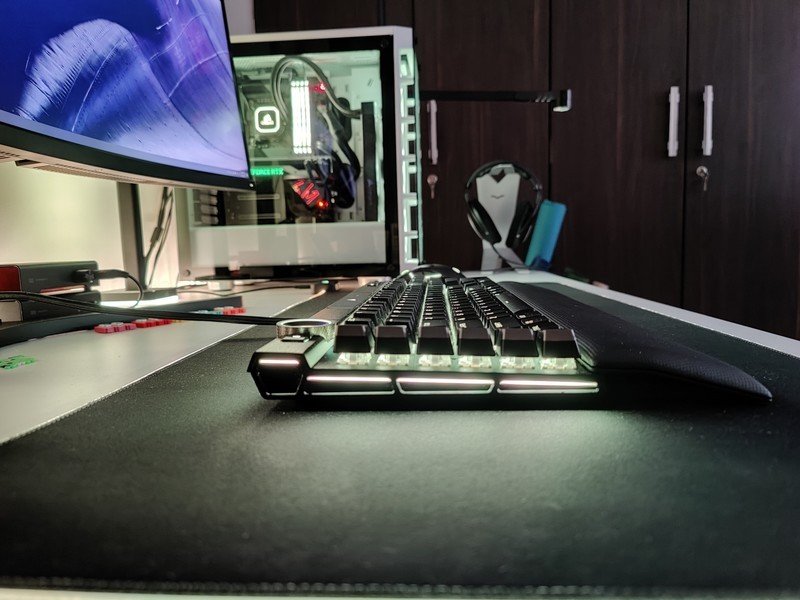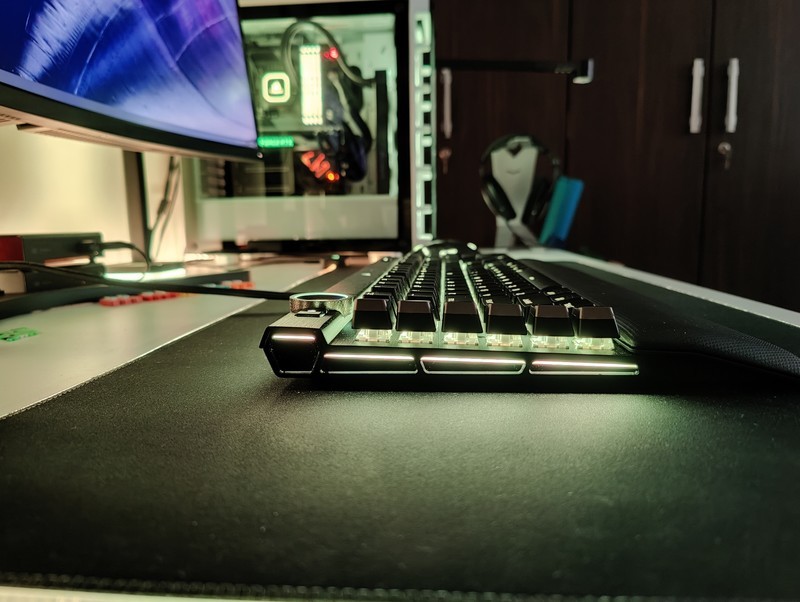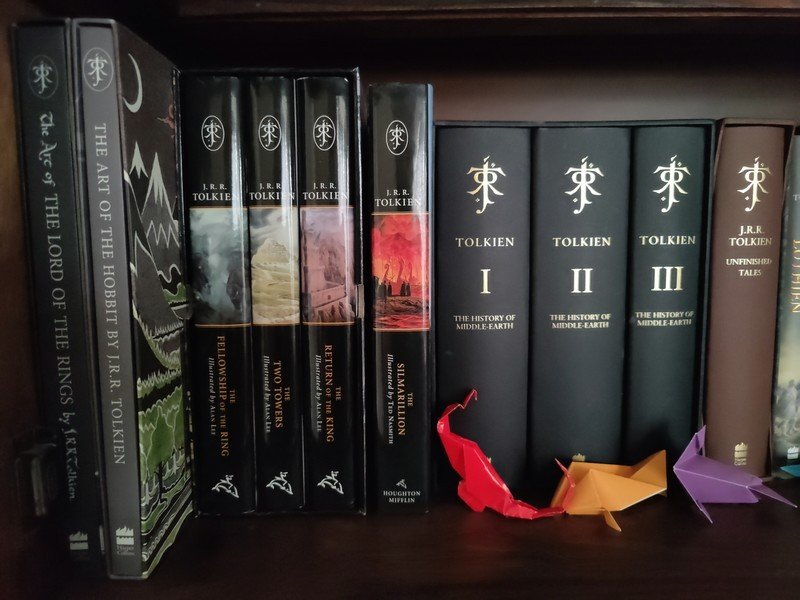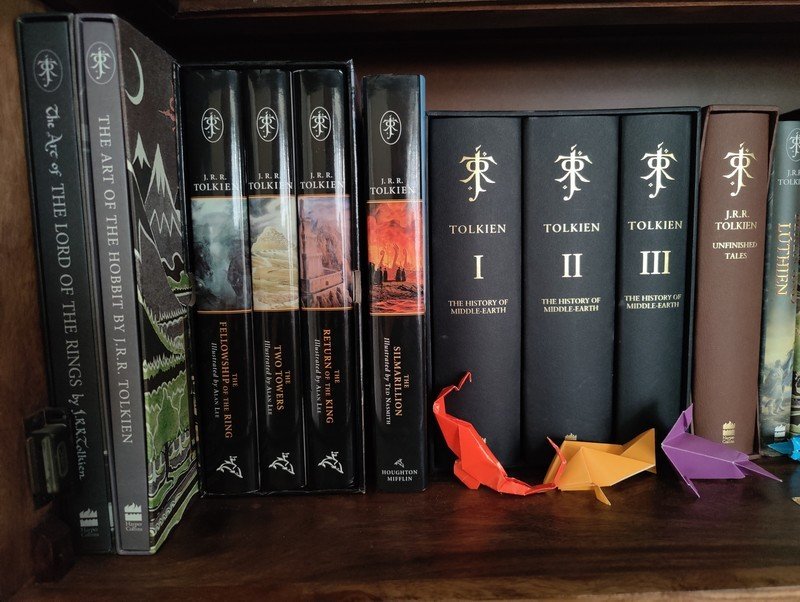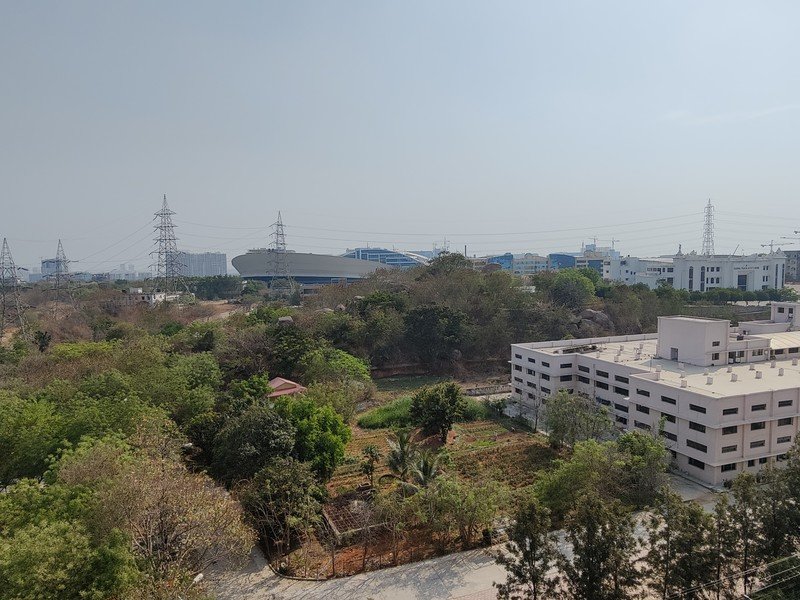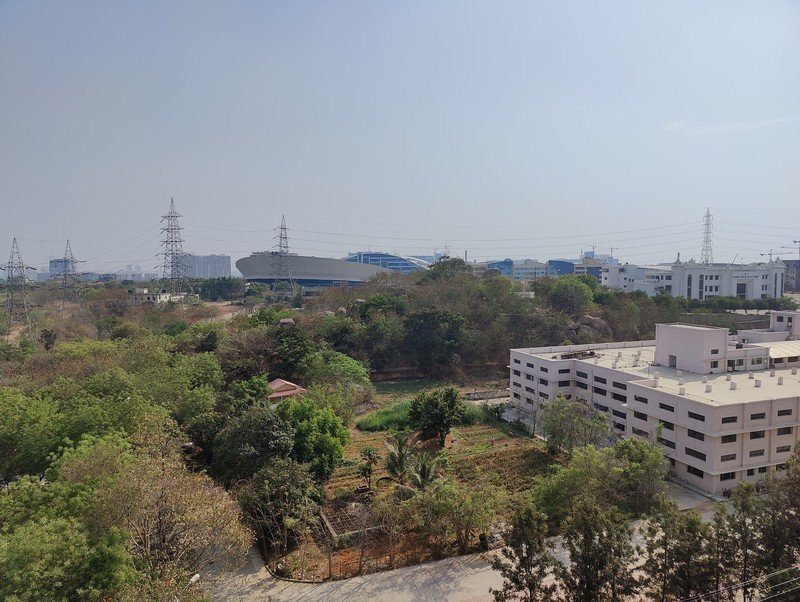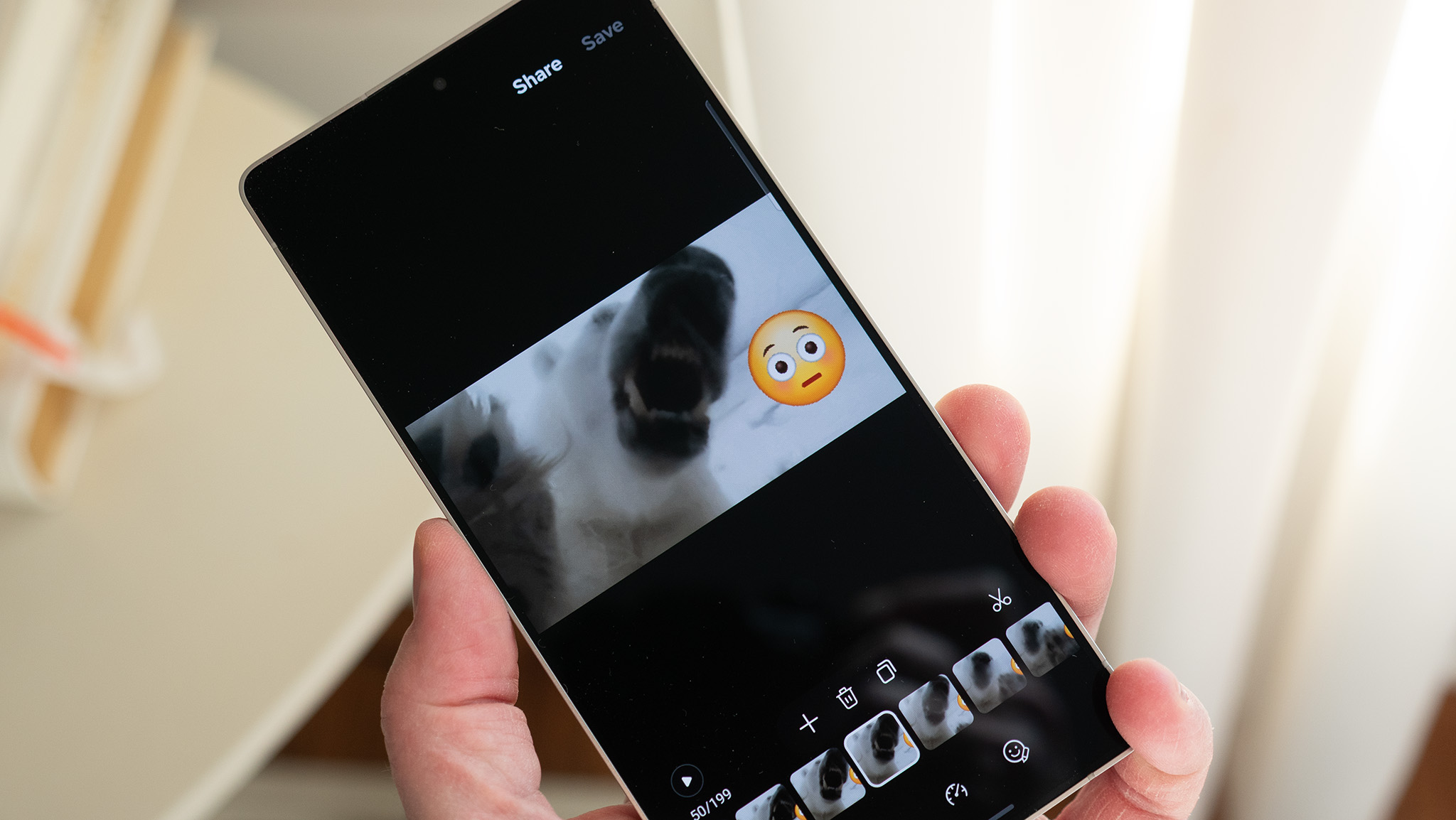OnePlus 9 vs. OnePlus 9 Pro: Which should you buy?
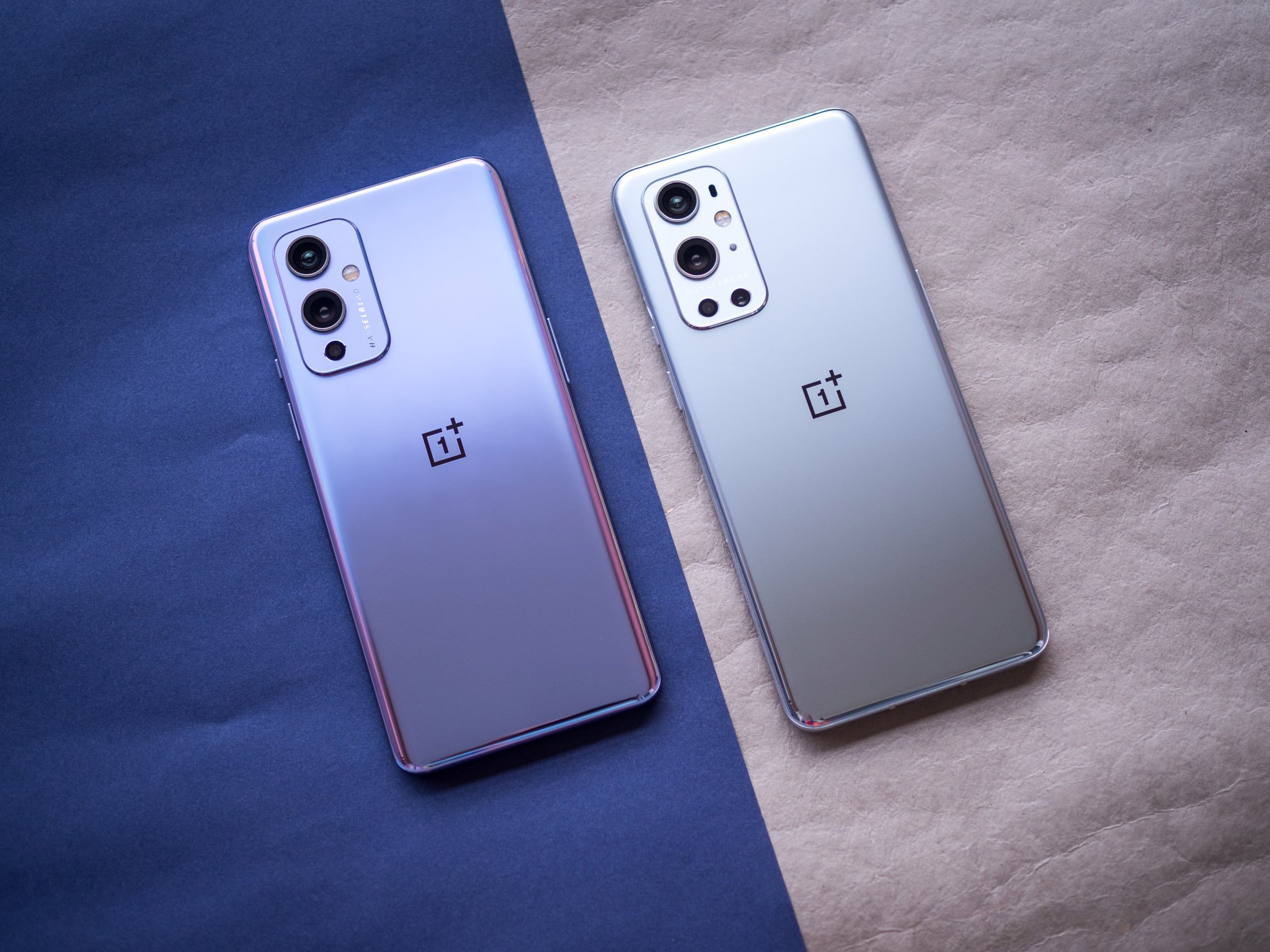
Get the latest news from Android Central, your trusted companion in the world of Android
You are now subscribed
Your newsletter sign-up was successful
OnePlus 9
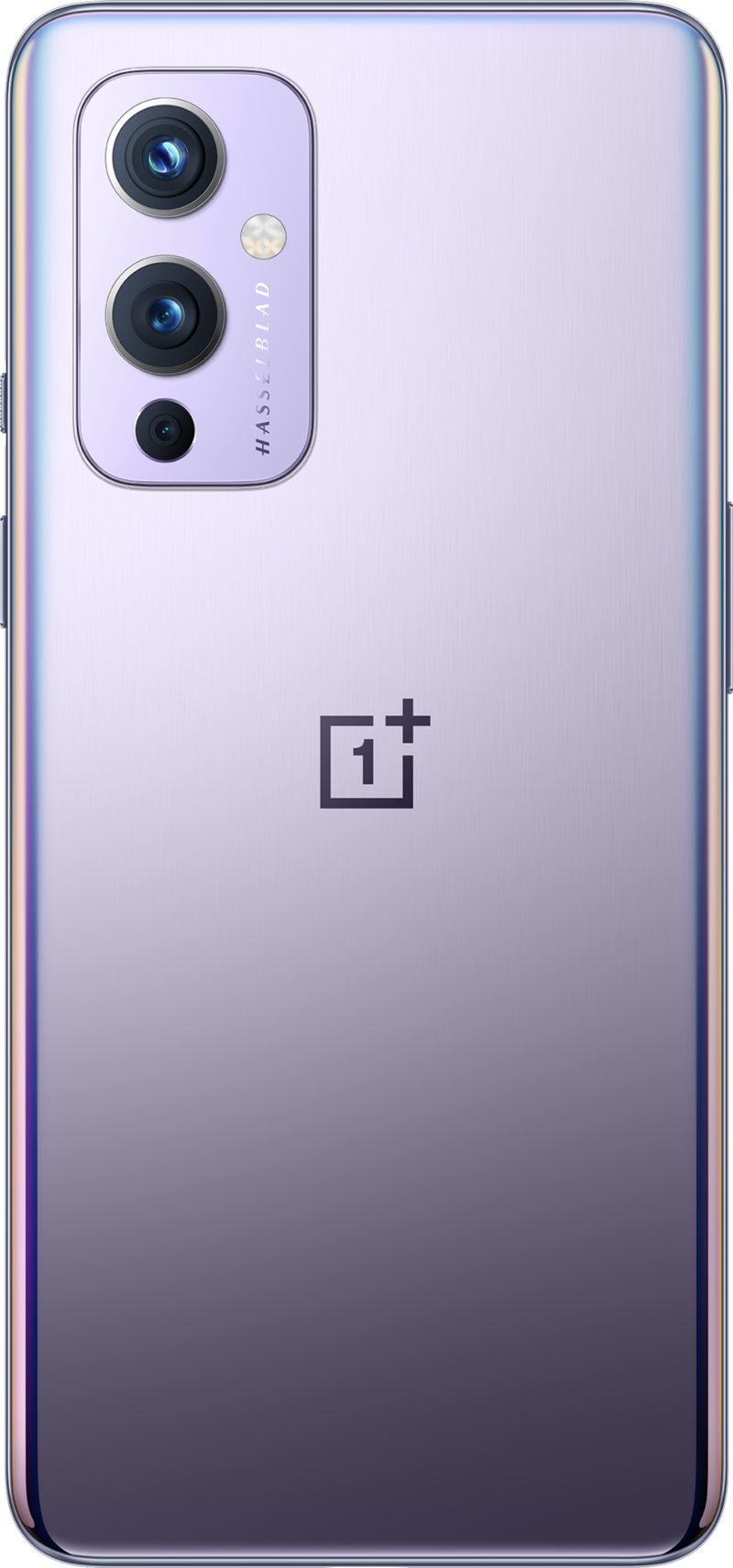
The OnePlus 9 is a great overall choice for 2021. You get a 120Hz AMOLED display, the latest Snapdragon 888 chipset with 5G (limited to T-Mobile in the U.S.), 65W fast charging with 15W Qi wireless charging, and the same primary camera as last year's 8 Pro. Combine that with the Hasselblad tuning and you get a truly incredible phone in the value flagship category.
OnePlus 9
Ultimate value
OnePlus 9 Pro
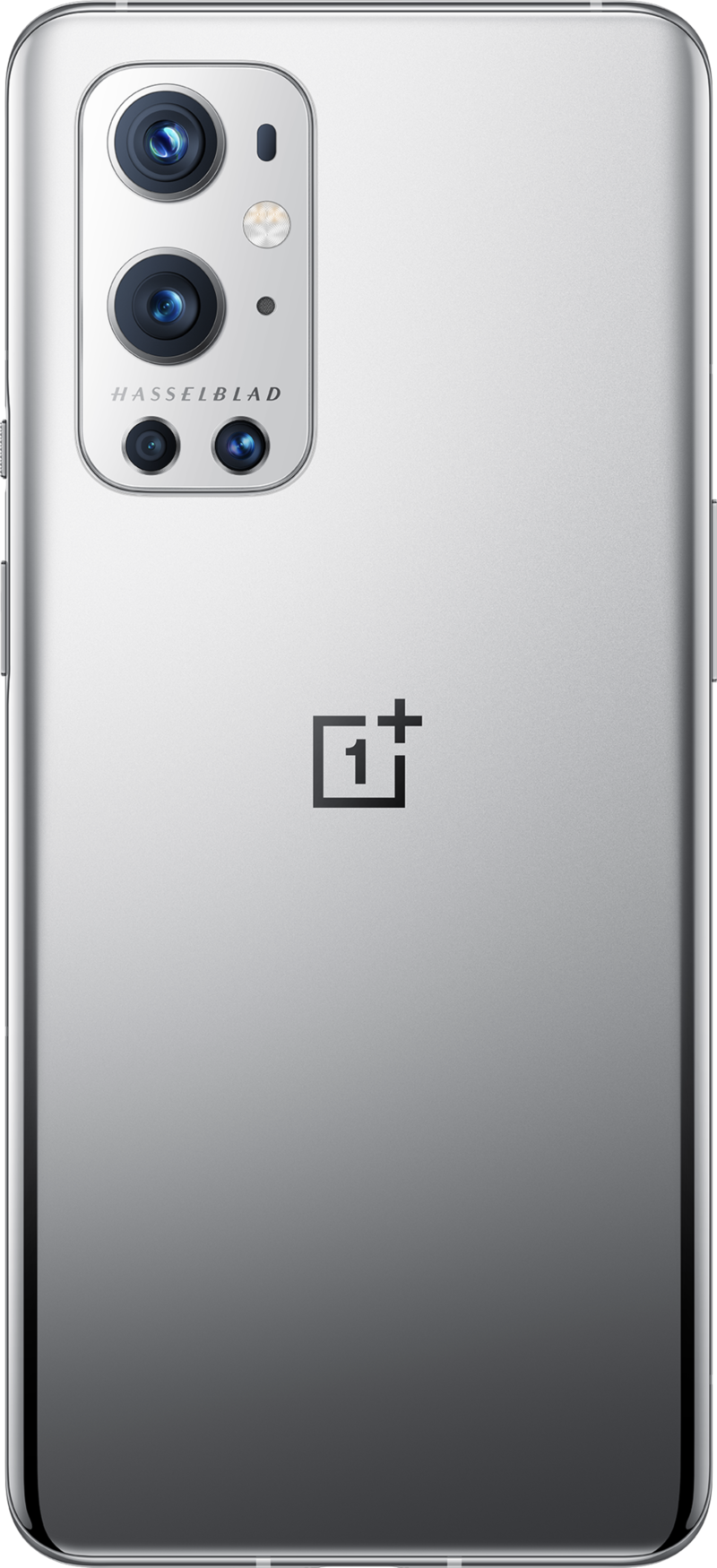
The OnePlus 9 Pro finally delivers cameras that hold up to the best phones available today. The phone is packing a QHD+ 120hz AMOLED display with LTPO tech, the latest internal hardware available today, 65W wired and 50W wireless charging, IP68 rating, and cameras that take outstanding photos in just about any lighting scenario. In short, this is one of the best Android flagships right now.
OnePlus 9 Pro
Ultimate cameras
OnePlus has always delivered exciting phones, but its cameras never quite passed muster against the best Android phones. That's changing in 2021 as the Chinese manufacturer teams up with German camera giant Hasselblad to deliver much-needed fixes in this area. So let's take a look at what the OnePlus 9 and 9 Pro have to offer, and which phone you should pick up if you're looking to upgrade in 2021.
OnePlus 9 vs. OnePlus 9 Pro: Design and display
Although the OnePlus 9 technically replaces the OnePlus 8, it shares a lot of similarities with the OnePlus 8 Pro. It has the same 48MP Sony IMX689 camera at the back, and combined with the Hasselblad tuning this year, you get much better photos. The phone also has 15W wireless charging — a feature that was limited to the Pro model last year — and you get 65W wired charging.
OnePlus has nailed the design this year — the OnePlus 9 and 9 Pro look incredible.
The OnePlus 9 Pro, meanwhile, takes things to an entirely new level. The phone has a brand new 48MP Sony IMX789 sensor that takes truly outstanding photos, and it has 50W wireless charging, and exciting display tech.
Let's start with the design. OnePlus switched to a more minimalist design language this year, and the new aesthetic makes the phones look elegant. Both phones are available in nature-inspired colors that look fantastic — the OnePlus 9 comes in Winter Mist, Arctic Sky, and Astral Black, and you can get the 9 Pro in Morning Mist, Pine Green, and Stellar Black.
The exciting new color options combined with the new camera housing at the back — with two sensors prominently highlighted by camera rings — makes the OnePlus 9 series stand out. The camera housing itself doesn't protrude too much from the chassis on either phone, so you shouldn't have any issues with using the phones on a flat surface.
Get the latest news from Android Central, your trusted companion in the world of Android
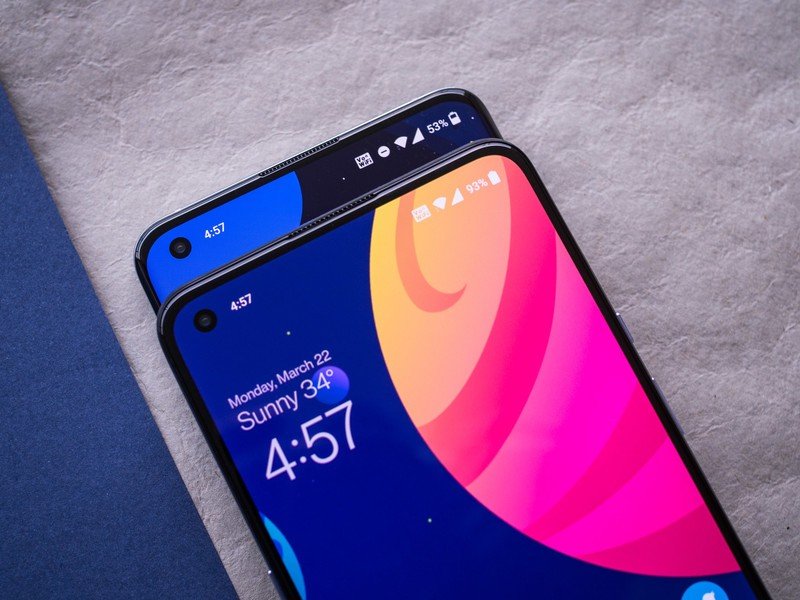
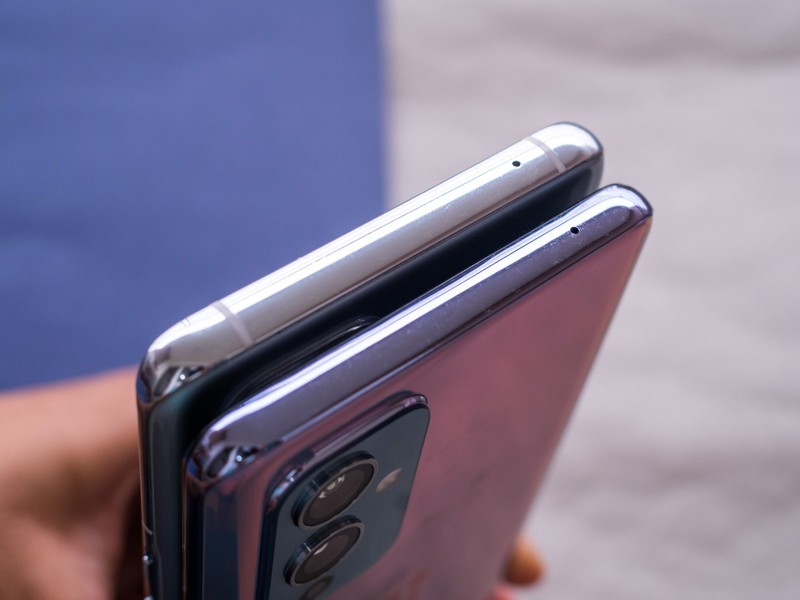
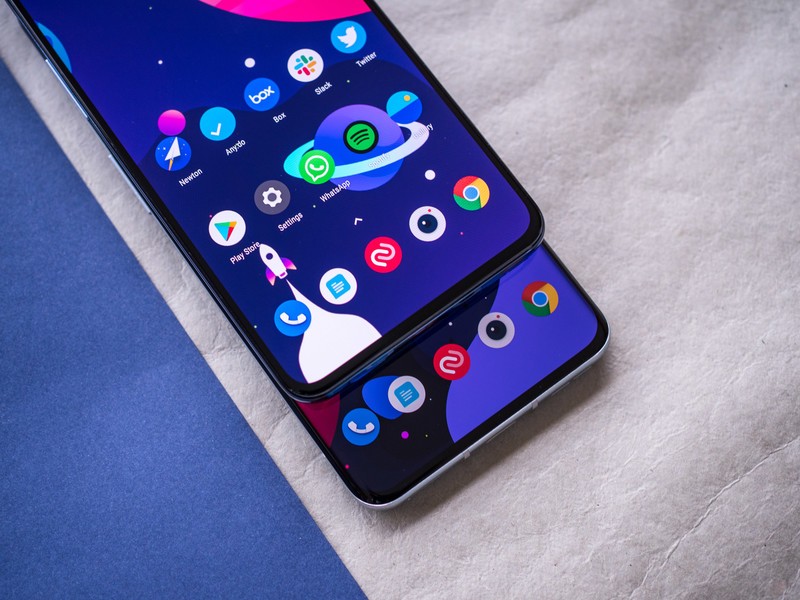
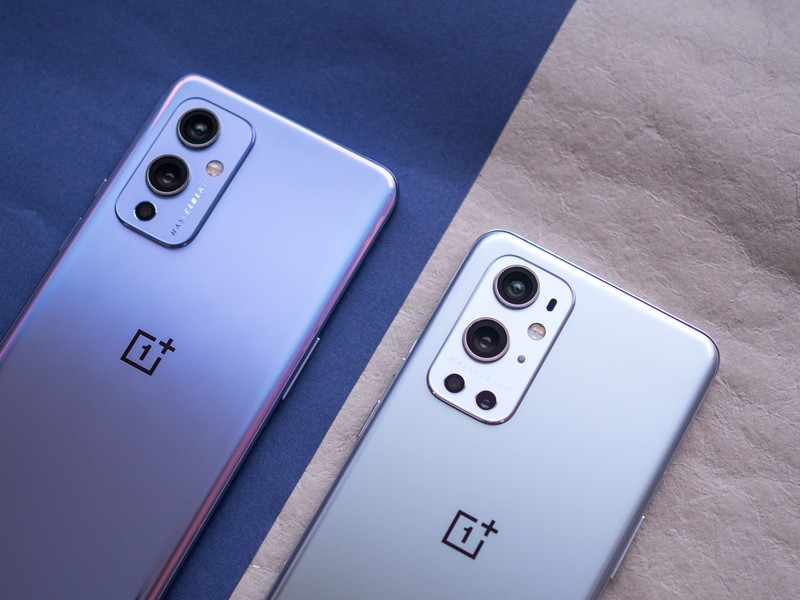
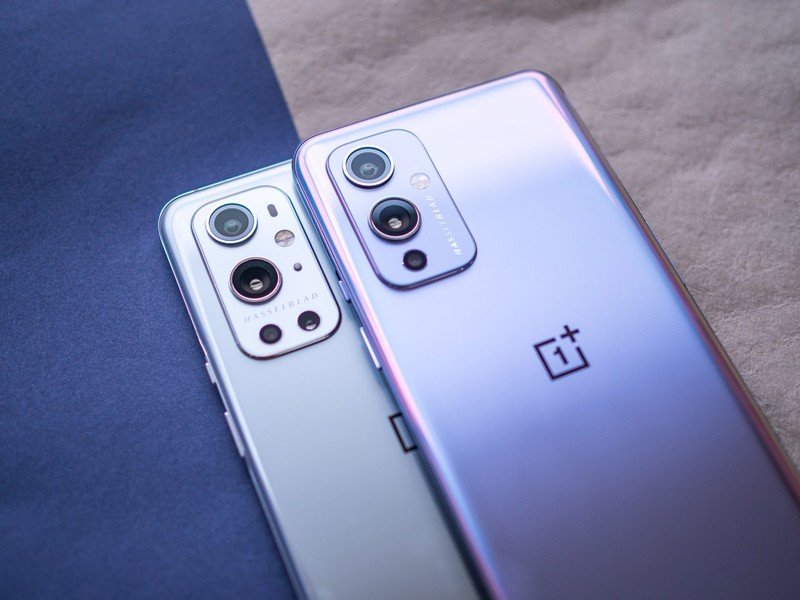
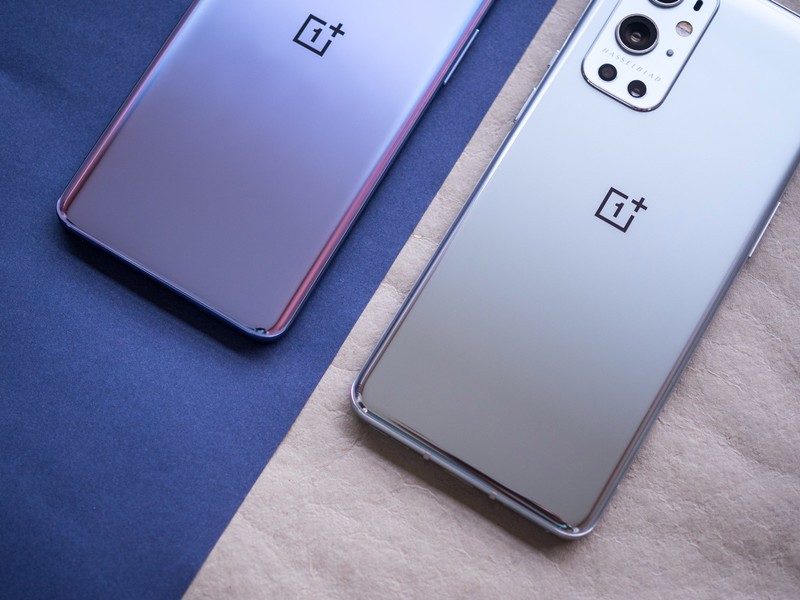
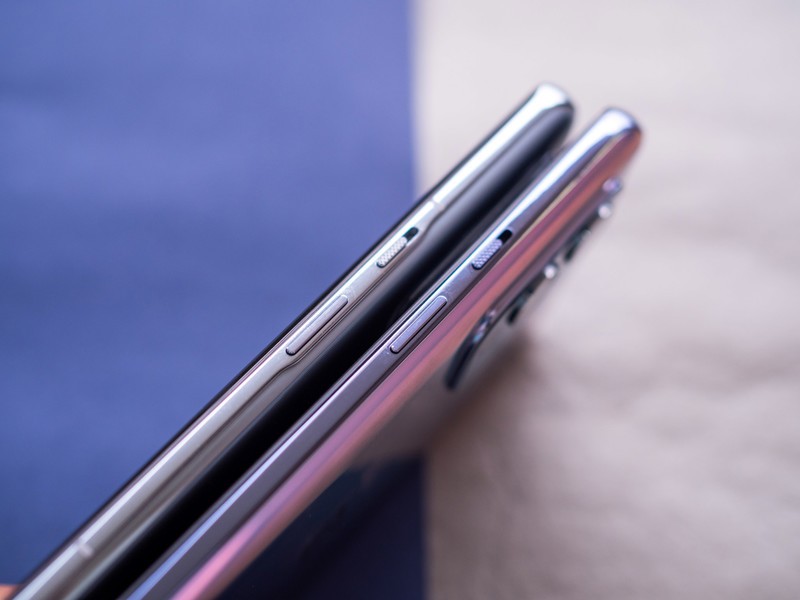
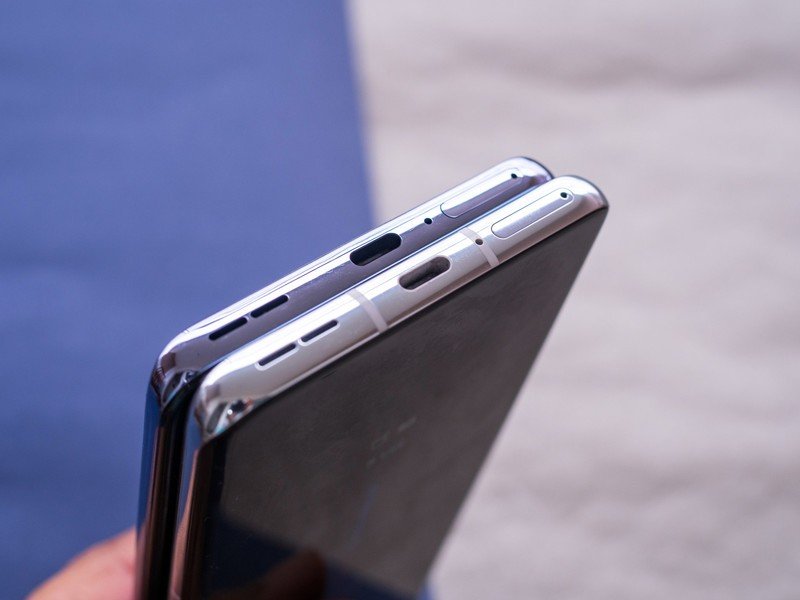
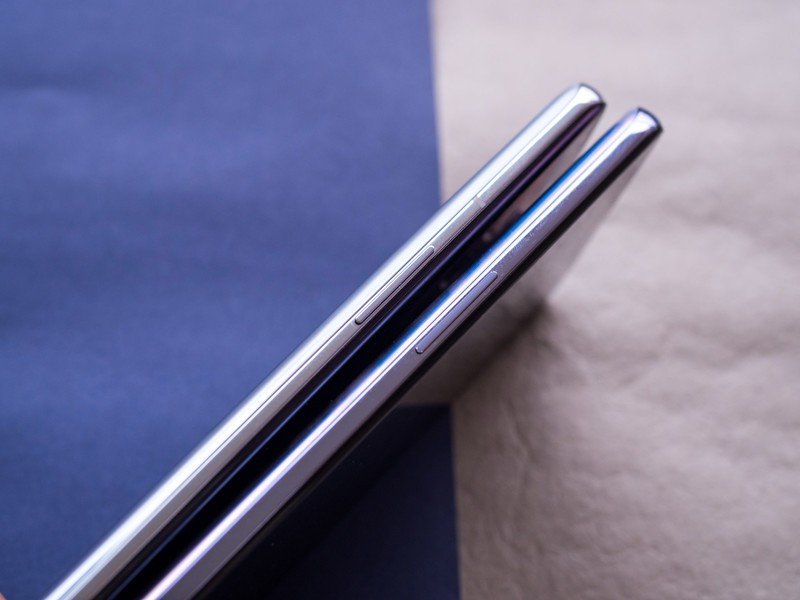
I'm using the Winter Mist OnePlus 9 and Morning Mist OnePlus 9 Pro, and the former has an iridescent pattern with various purple hues, and the latter has a mirror finish. Both phones have a glossy back, but the Pine Green and Stellar Black models of the 9 Pro have a matte finish.
Both phones have dual-SIM connectivity, but the North American models are limited to single-SIM. They also have stereo sound, and like last year, while both devices are waterproof, it's just the 9 Pro that gets the IP68 rating for dust and water resistance. T-Mobile shelled out the money to get its variant of the OnePlus 8 certified last year, and the carrier is doing the same this time for its OnePlus 9 version.
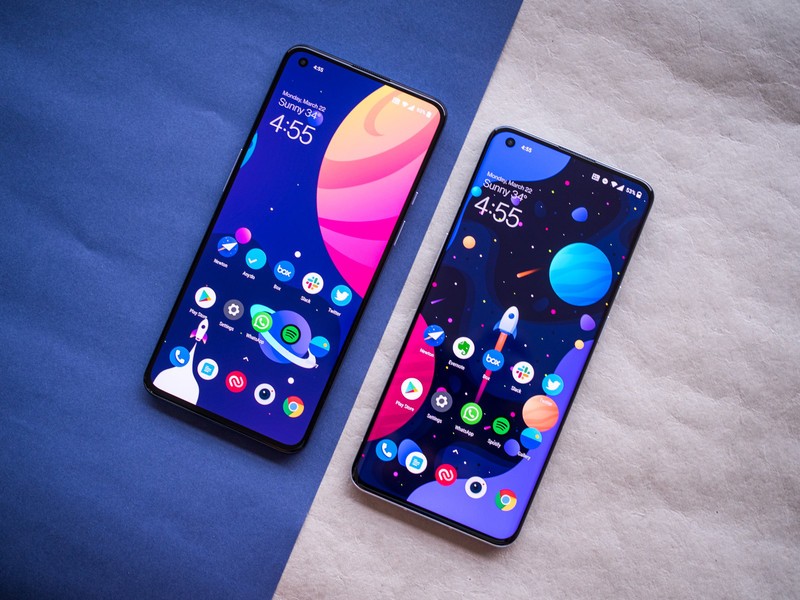
In terms of the display, both phones have AMOLED panels with 120Hz refresh rate, putting them on par with the best phones in the market today. The OnePlus 9 has a 6.5-inch FHD+ AMOLED display with flat sides, while the 9 Pro comes with a 6.7-inch QHD+ AMOLED panel with dual curves. The curvature of the screen isn't as extreme as last year, so it isn't unwieldy to use.
Along with the higher resolution display, the OnePlus 9 Pro leverages LTPO tech to dynamically switch the refresh rate on the fly, with the panel able to go from 120Hz all the way down to 1Hz. The OnePlus 9, meanwhile, can switch between 60Hz and 120Hz.
You're not going to find any faults with either display here, but the OnePlus 9 Pro just offers that little bit extra — both in terms of screen resolution and dynamic refresh. Both phones have the same set of software features, and you get plenty of customizability, including several AOD styles.
OnePlus 9 vs. OnePlus 9 Pro: Hardware and battery life
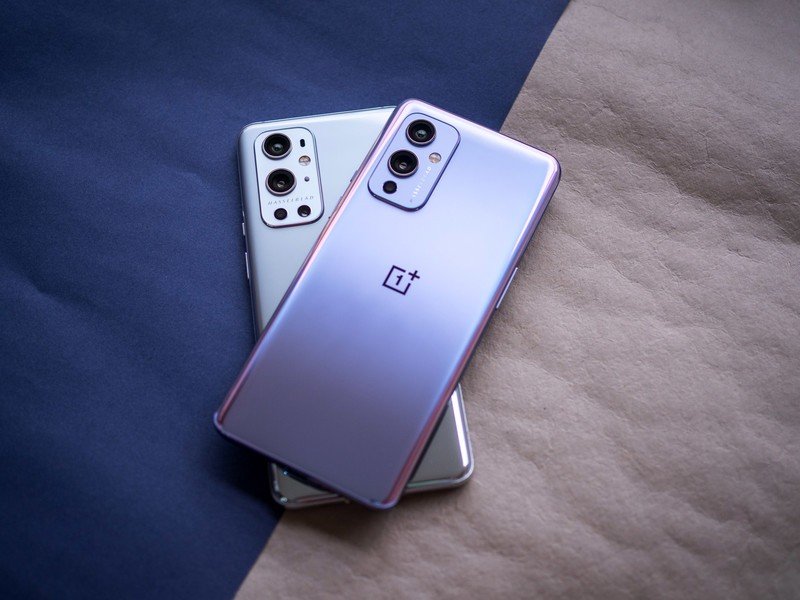
The OnePlus 9 and 9 Pro are nearly identical in terms of the internal hardware; both phones are powered by the Snapdragon 888 chipset and have 5G connectivity. They're available with 8GB of LPDDR5 RAM and 128GB of UFS 3.1 storage for the base models, and you can also pick up a 12GB/256GB option for both phones.
Make no mistake; these are two of the fastest phones you can buy today.
The hardware on offer makes these the fastest Android phones available today. A large part of that is also down to the software optimization, with OxygenOS delivering a fluid experience that outshines every other Android interface in 2021. Both phones deliver truly outstanding performance for day-to-day tasks and intensive gaming, and they should hold up just fine for several years.
On the software front, both phones run OxygenOS 11 based on Android 11 out of the box. OxygenOS continues to deliver a great overall experience, and it has all the customization features you need while ensuring there's no bloatware.
In terms of the battery, both the OnePlus 9 and 9 Pro have a 4500mAh battery with a dual-cell system that includes two 2250mAh batteries. They both feature 65W wired charging with the Warp Charge 65T standard, with OnePlus making a few tweaks to allow for even faster charging.
The result is that both phones can change from zero to 100% in just 29 minutes. That's a remarkable feat, and the bundled 65W charger works over the USB PD protocol at up to 45W, so you can use it for other accessories.
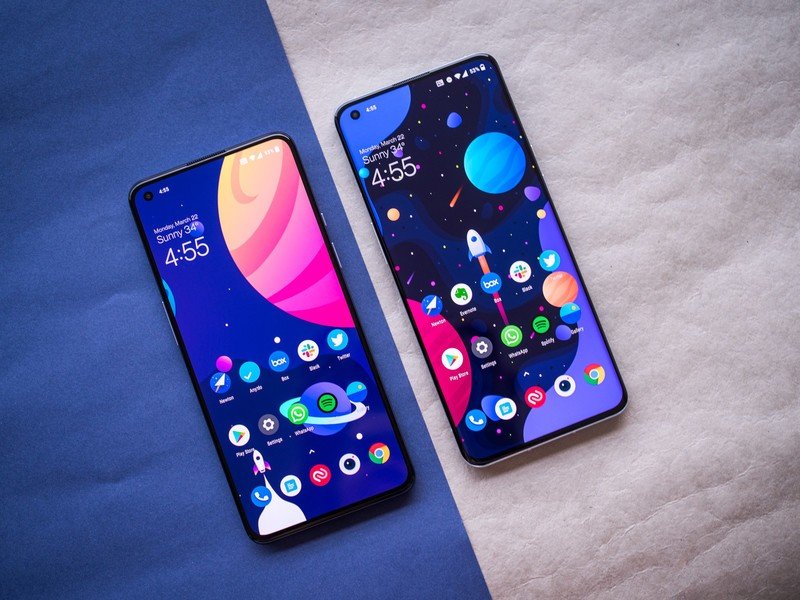
There are exciting upgrades around wireless charging. The OnePlus 9 gets 15W Qi wireless charging this time, but the feature is limited to North American and European models — the Indian variant misses out. The OnePlus 9 Pro, meanwhile, gets 50W wireless charging delivered by the Warp Charge Wireless 50 standard, and it fully charges the battery in just 43 minutes.
While both phones have requisite 5G bands, they don't work on AT&T or Verizon's 5G networks in the U.S.
The downside is that the battery life on the 9 Pro is far from great. The battery barely lasts a day with QHD+ resolution at 120Hz, and you won't get more than four hours of screen-on-time. OnePlus has admitted that it is an issue and says an update is on the way to fix battery life problems, but there's no timeline for the same.
The OnePlus 9 Pro has Sub-6 and mmWave 5G connectivity in North America, while the regular OnePlus 9 is limited to Sub-6 bands. That said, both phones are limited to T-Mobile 5G in the U.S., and this is the case even for the unlocked models. So if you're on AT&T and Verizon, you cannot use 5G on either device.
The phones work with MVNOs that leverage T-Mobile 5G — like Google Fi — but the fact that they're not compatible with AT&T and Verizon means most potential customers in the U.S. stand to miss out. The global variants feature Sub-6 connectivity as standard, and the European models have the requisite connectivity for most carriers in the region. And while the Indian models have 5G connectivity, you get just two Sub-6 bands.
OnePlus 9 vs. OnePlus 9 Pro: Cameras
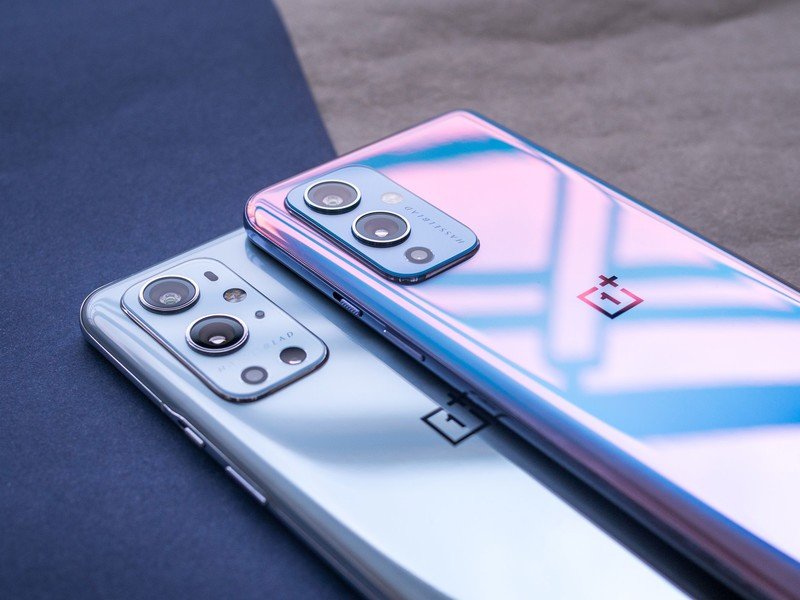
Both the OnePlus 9 and 9 Pro feature 48MP primary cameras, but they have different imaging modules. The OnePlus 9 uses the Sony IMX689 from last year's OnePlus 8 Pro, with the 9 Pro getting a new Sony IMX789. Both devices are tuned by Hasselblad and benefit from the camera maker's color science.
You'll find the same 50MP IMX766 wide-angle lens on both devices. The wide-angle lens is the best on any phone today, and it delivers the same caliber of photos as the primary lens. Both phones also get the ability to shoot 8K video at 30fps, and the 9 Pro has a slight edge with 4K — it can shoot at up to 120fps while the standard version only goes up to 60fps.
The standard OnePlus 9 misses out on the 8MP telephoto lens, but it gets the 2MP monochrome module that acts as a hardware filter for the 48MP primary camera on both phones. The 16MP Sony IMX471 sensor is also identical across both devices, and you'll find the same Hasselblad Pro mode.
Source: Harish Jonnalagadda / Android Central
OnePlus 9 on the left, OnePlus 9 Pro on the right
Source: Harish Jonnalagadda / Android Central
Source: Harish Jonnalagadda / Android Central
Source: Harish Jonnalagadda / Android Central
Both phones manage to take standout shots, but the OnePlus 9 Pro does a better job with highlights and preserving detail. The 9 Pro is marginally faster to focus, and offers true-to-life colors (the OnePlus 9 tends to skew slightly warmer in daylight conditions).
The phone truly shines in low-light scenarios, delivering outstanding photos even with little to no artificial lighting. There's a dedicated night mode that stacks multiple photos at various exposure levels into a single image, but even in auto mode the phone does a remarkable job minimizing noise levels. The OnePlus 9 also does a great job in low-light, but you miss out on the detail and there's visible noise.
If you want the best camera that OnePlus has to offer right now, the 9 Pro is the obvious pick.
OnePlus 9 vs. OnePlus 9 Pro: Specs
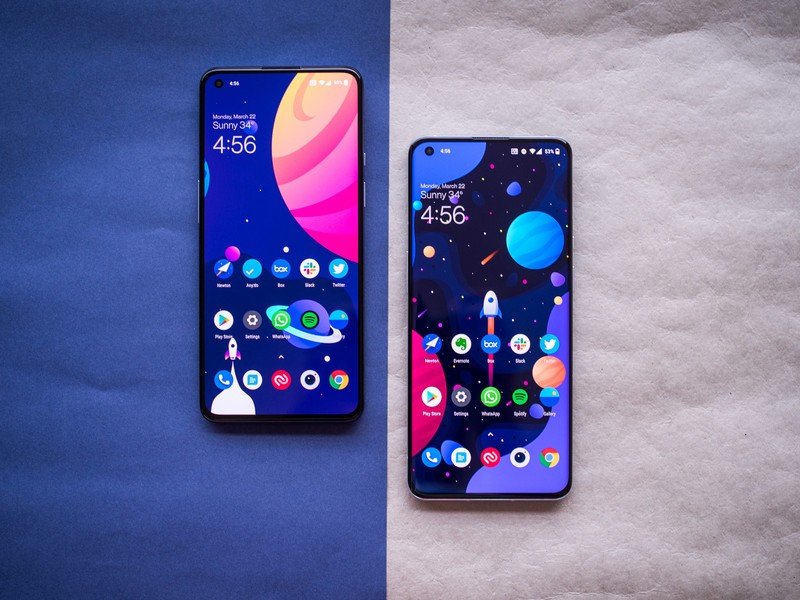
| Header Cell - Column 0 | OnePlus 9 | OnePlus 9 Pro |
|---|---|---|
| Operating system | Android 11 OxygenOS 11 | Android 11 OxygenOS 11 |
| Display | 6.5-inch 120Hz AMOLED 2400x1080 (20:9) Gorilla Glass 5 | 6.7-inch 120Hz LTPO AMOLED 3216x1440 (20.1:9) Dual curved screen Gorilla Glass 5 |
| Chipset | Snapdragon 888 1 x 2.84GHz Cortex X1 3 x 2.42GHz Cortex A78 4 x 1.80GHz Cortex A55 5nm | Snapdragon 888 1 x 2.84GHz Cortex X1 3 x 2.42GHz Cortex A78 4 x 1.80GHz Cortex A55 5nm |
| GPU | Adreno 660 | Adreno 660 |
| RAM | 8GB/12GB LPDDR5 | 8GB/12GB LPDDR5 |
| Storage | 128GB/256GB UFS3.1 | 128GB/256GB UFS3.1 |
| MicroSD slot | ❌ | ❌ |
| Rear camera 1 | 48MP Sony IMX689 f/1.8, 1.12um, EIS 8K at 30fps, 4K at 60fps Hasselblad Camera for Mobile | 48MP Sony IMX789 f/1.8, 1.12um, OIS, EIS 8K at 30fps, 4K at 120fps Hasselblad Camera for Mobile |
| Rear camera 2 | 50MP Sony IMX766 (wide-angle) f/2.2, freeform lens 4K at 60fps | 50MP Sony IMX766 (wide-angle) f/2.2, freeform lens 4K at 60fps |
| Rear camera 3 | 2MP monochrome camera | 8MP telephoto f/2.4, 1.0um 3x optical zoom |
| Rear camera 4 | ❌ | 2MP monochrome camera |
| Front camera | 16MP Sony IMX471 f/2.4, 1.0um, EIS Fixed focus | 16MP Sony IMX471 f/2.4, 1.0um, EIS Fixed focus |
| Connectivity | Wi-Fi 6, Bluetooth 5.2 NFC, AptX HD, A-GPS | Wi-Fi 6, Bluetooth 5.2 NFC, AptX HD, A-GPS |
| 5G (North America) | Sub-6: N1, 2, 3, 5, 7, 8, 20, 25, 28, 38, 40, 41, 48, 66, 71, 77, 78 | Sub-6: N1, 2, 3, 5, 7, 8, 25, 28, 38, 40, 41, 48, 66, 71, 77, 78 mmWave: N258, 260, 261 |
| 5G (Europe) | Sub-6: N1, 3, 5, 7, 8, 20, 28, 38, 40, 41, 66, 78 | Sub-6: N1, 3, 5, 6, 8, 20, 28, 38, 40, 41, 66, 77, 78 |
| 5G (India) | Sub-6: N41, 78 | Sub-6: N41, 78 |
| Battery | 4500mAh (2 x 2250mAh), USB-C 3.1 65W Warp Charge 65T (10V/6.5A) 15W Qi wireless charging (North America/Europe) | 4500mAh (2 x 2250mAh), USB-C 3.1 65W Warp Charge 65T (10V/6.5A) 50W Warp Charge 50 Wireless (In: 10V/6.5A, 20V/3.25A; Out: 50W max) |
| Audio | USB-C Stereo speaker | USB-C Stereo speaker |
| Security | In-display fingerprint (optical) | In-display fingerprint (optical) |
| Dimensions | 160 x 74.2 x 8.7mm (North America/Europe) 160 x 73.9 x 8.1mm (India/China) | 163.2 x 73.6 x 8.7mm |
| Weight | 192g (North America/Europe) 183g (India/China) | 197g |
| Colors | Winter Mist, Arctic Sky, Astral Black | Morning Mist, Pine Green, Stellar Black |
OnePlus 9 vs. OnePlus 9 Pro: Which should you buy?
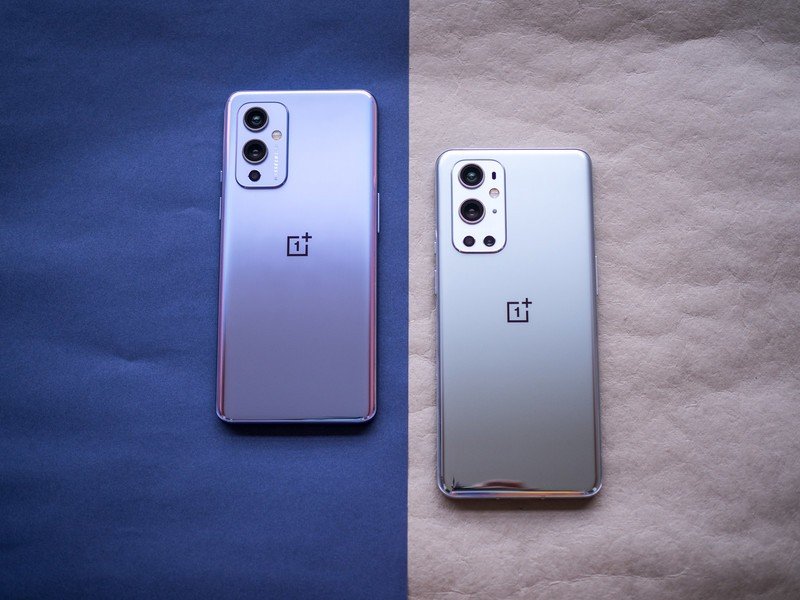
Regardless of whatever phone you're picking up, you are getting a great overall option. The OnePlus 9 is going on sale for $729, making it an enticing option if you're looking for a value flagship in 2021.
The OnePlus 9 has a 120Hz AMOLED panel, the same internal hardware as the 9 Pro, 4500mAh battery with 65W fast charging, and Qi 15W wireless charging. It is annoying that the feature isn't available on the Indian unit, but in other global regions, wireless charging is a differentiator.
You're getting two stellar phones here, and the OnePlus 9 in particular stands out for the value.
It also has waterproofing, and the 48MP camera takes great photos in most lighting conditions. It is almost as good as the primary lens on the 9 Pro, but for what you're ultimately paying for the phone, it offers a lot. There's also the fact that you're getting the same 50MP wide-angle lens on both phones.
The OnePlus 9 Pro starts off at $969 — $240 more than the regular OnePlus 9. For that amount, you get a better camera, 3x zoom lens, QHD+ display with the new LTPO tech, and 50W wireless charging. Aside from these, you aren't really missing out on much.
If you want all the extras that the OnePlus 9 Pro has to offer, it is a solid choice. If you're instead looking to save some cash, the OnePlus 9 gives you most of the same features at a significant discount. With 5G limited to T-Mobile in the U.S. even for the unlocked variants, you'll either have to switch to the carrier or use a service that piggybacks off T-Mobile's 5G network, like Google Fi.
Over in India, the OnePlus 9 retails at ₹49,999 ($690), with the 9 Pro slotting in at ₹64,999 ($900). That's significantly more than what OnePlus charged for its flagships in the past, and it's hard to see the Indian variant costing as much as the global models while missing out on wireless charging. Neither is a decent option for India, and that's the primarily why the country is also getting a OnePlus 9R variant.

Setting a new bar for value flagships
The OnePlus 9 delivers most of the same features as the OnePlus 9 Pro but at a more affordable price. You're still getting a 120Hz AMOLED panel, the latest internal hardware, a stellar 48MP camera with Hasselblad tuning, 50MP wide-angle lens, and 65W fast charging with 15W wireless charging in most global markets. That said, you're limited to T-Mobile 5G in the U.S.

The ultimate Android flagship in 2021
If you want the best phone that OnePlus has to offer right now, the OnePlus 9 Pro is the obvious choice. It has an outstanding QHD+ 120Hz display, top-notch hardware, one of the best cameras of any phone today, and 65W wired along with 50W wireless charging. It has mmWave 5G in the U.S., but you can't use it on Verizon's 5G network right now.

Harish Jonnalagadda is Android Central's Senior Editor overseeing mobile coverage. In his current role, he leads the site's coverage of Chinese phone brands, networking products, and AV gear. He has been testing phones for over a decade, and has extensive experience in mobile hardware and the global semiconductor industry. Contact him on Twitter at @chunkynerd.
